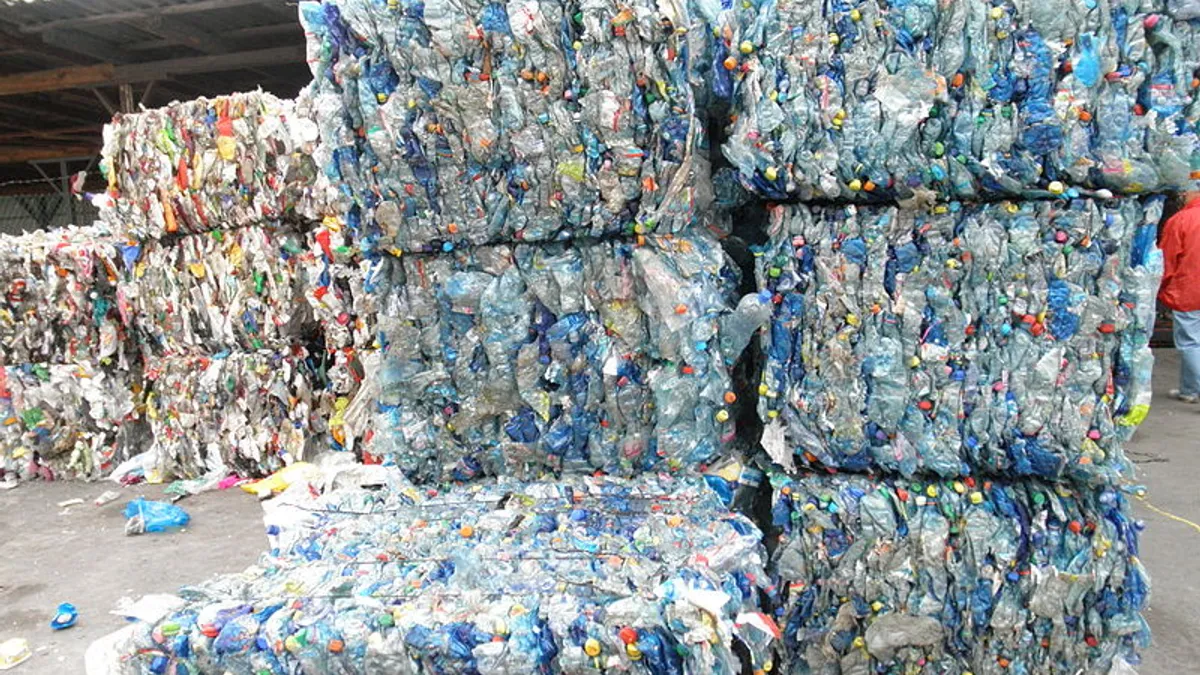Dive Brief:
- Andy Ive, a British design engineer, has developed a mobile material recovery facility (MRF) that he says can help manage waste at the growing number of refugee camps including those in Syria, as reported by Waste Management World.
- Ive originally developed the idea while working at camps in the Sahara for the oil and construction industry where he was told to bury waste in the sand. His self-powered unit fits in a standard shipping container, turns plastic bottles into temporary building bricks, and can separate and compact mixed waste.
- Following this idea, Ive has partnered with the Disaster Management Centre at the U.K.'s Bournemouth University to work on waste management technologies for emergency situations.
Dive Insight:
With tens of millions of people now living in refugee camps in various countries — more displaced than any time in modern history — waste management has become a growing concern at these sites. Poor sanitation is a major health issue, especially as it appears that many of these people may be stuck living in camps longer than previously expected.
While the cost and viability of rolling out this concept on a large scale remain unclear, the mobile MRF unit is small and could theoretically be replicated by engineers in other countries. The idea of turning plastic into lightweight building material has been taking off in the U.S. as well, driven by companies such as ByFusion, and has a lot of potential for these types of temporary settings.
Finding waste management solutions to mitigate disaster situations around the globe is not a new concept. Thread, a plastics-to-fabric company that employs Haitians to collect plastic waste from the 2010 earthquake and recycle it into usable fabric material, is just one example of this concept. Whether the issue is unregulated dumpsites or large-scale marine pollution, any knowledge or assistance that waste management professionals can bring into such situations will be beneficial.















